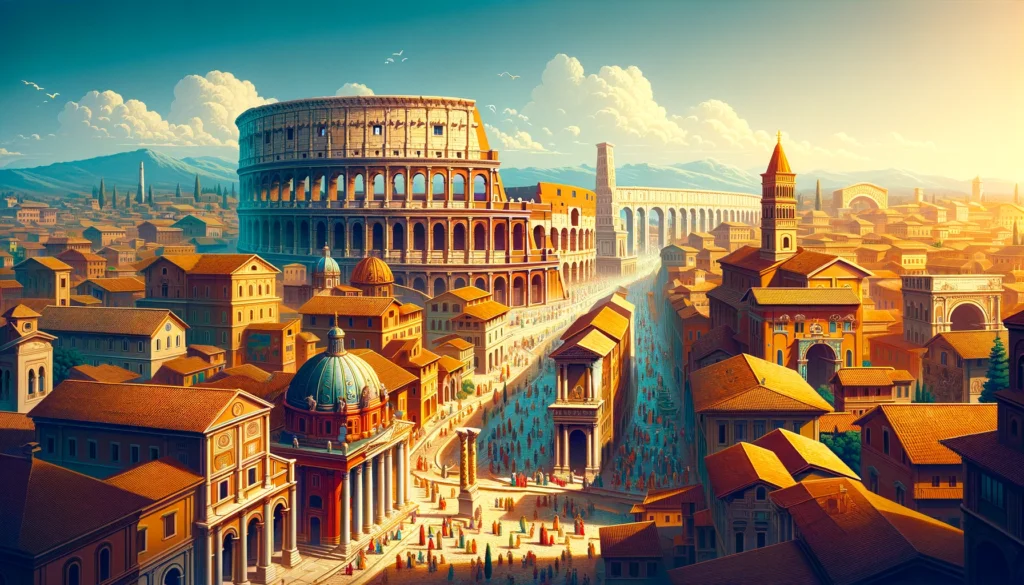Introduction
The time period antiquità incorporates within it a profound resonance, evoking visions of bygone eras that laid the muse for our contemporary international. It’s miles a portal into a realm in which history intersects with myth, wherein the echoes of historic civilizations shape our understanding of human society, art, and philosophy. This exploration delves into the multifaceted concept of antiquità, inspecting its ancient context, cultural importance, and enduring legacy.
Defining Antiquità
At its core, antiquità refers back to the duration of classical antiquity, encompassing the civilizations of ancient Greece and Rome. But, the time period’s scope extends beyond those barriers, encompassing different historic cultures that flourished across exclusive continents and time periods.
The Cradle of Civilization: Ancient Greece
Greece, frequently hailed because the birthplace of Western civilization, contributed immensely to the tapestry of antiquità. Its philosophical giants, along with Socrates, Plato, and Aristotle, laid the foundation for Western concept, exploring ethics, metaphysics, and politics.
The Greek penchant for art and architecture is obvious within the enduring splendor of the Parthenon and the sculptures of the Classical duration. Their dramatic aptitude discovered expression in tragedies and comedies, shaping the principles of Western theater.
The Roman Empire: Power, Law, and Engineering
Constructing upon the legacy of the Greeks, the Roman Empire multiplied its affect throughout Europe, North Africa, and the middle East. Roman law, with its emphasis on codified guidelines and legal methods, shaped the basis of many current legal structures.
Roman engineering marvels, which includes aqueducts and roads, stand as testaments to their technical prowess. The empire’s administrative and army structures left an indelible mark on governance and struggle.
Beyond Greece and Rome: Other Ancient Civilizations
Whilst Greece and Rome frequently dominate discussions of antiquità, it’s vital to apprehend the contributions of other historical cultures. Egypt, with its monumental pyramids and hieroglyphics, evolved state-of-the-art structures of governance, agriculture, and medicine. Mesopotamia, the cradle of civilization, gave upward push to cuneiform writing, astronomical observations, and complicated prison codes.
The Legacy of Antiquità
The impact of antiquità permeates each aspect of current existence. Our language, literature, artwork, and architecture bear the imprint of historical civilizations. The democratic ideals that underpin many societies may be traced returned to Athenian democracy. The idea of law and order reveals its roots in Roman jurisprudence.
Moreover, the look at of antiquità gives precious insights into human nature, societal structures, and the demanding situations faced via beyond civilizations. With the aid of information the beyond, we will better admire the present and shape a greater informed future.
FAQs about Antiquità
What is Antiquità?
Antiquità refers to the duration of classical antiquity, which encompasses the civilizations of historic Greece and Rome. 1 it’s also other ancient cultures that flourished across extraordinary continents and time durations. This era laid the foundation for many elements of current society, which include art, philosophy, regulation, and authorities.
What were the main contributions of Ancient Greece to Antiquità?
Historical Greece is regularly taken into consideration the birthplace of Western civilization.
Key contributions include:
Philosophy: Thinkers like Socrates, Plato, and Aristotle advanced foundational philosophical ideas.
Art and structure: The Parthenon and other Greek systems are iconic examples of classical beauty.
Theater: Greek tragedies and comedies formed the development of Western theater.
What were the main contributions of the Roman Empire to Antiquità?
The Roman Empire increased upon Greek achievements and made good sized contributions in:
- Regulation: Roman law formed the idea for plenty cutting-edge criminal systems.
- Engineering: Aqueducts, roads, and other infrastructure tasks showcased Roman engineering prowess.
- Government: The Roman system of governance influenced many later political systems.
Conclusion
Antiquità is a testomony to the long-lasting human spirit and its potential for creativity, innovation, and societal improvement. From the philosophical depths of ancient Greece to the executive might of Rome, the echoes of these civilizations hold to shape our global. By means of exploring the rich tapestry of antiquità, we benefit a profound appreciation for the foundations upon which our present day society is built.
Whilst demanding situations and complexities marked these historical eras, their legacies offer helpful insights into human nature, governance, and the pursuit of information. As we look to the future, understanding the past turns into more and more critical. Antiquità serves as a wellspring of concept, reminding us of our capability for greatness and the importance of preserving our cultural history.
by using delving into the arena of antiquità, we embark on a undying adventure that connects us to our shared human records and ignites a ardour for exploration and discovery.

